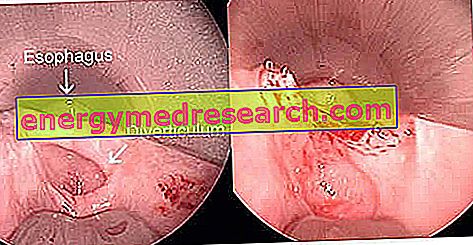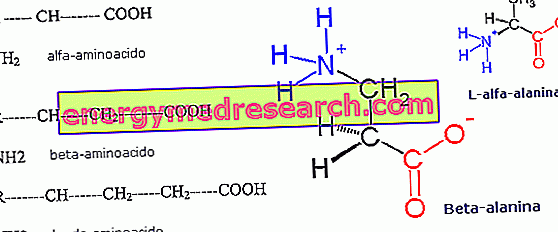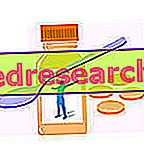Definition
Cholelithiasis, or more commonly "gallbladder stones" is a common disease affecting the bile ducts: it is a disease associated with the formation of stones from the concentration of some residues or constituents of bile. Gall bladder stones are small solid aggregates composed mainly of calcium salts (20% of cases) or cholesterol (80% of cholelithiasis patients).
Causes
Gall bladder stones are often associated with other pathologies: abscesses, gallstones, gangrene, gallbladder inflammation, chronic gallbladder diseases, polyps in the gallbladder, gallbladder or biliary tract cancer.
Symptoms
It is not uncommon for gall bladder stones to be diagnosed randomly: in fact, in some patients, cholelithiasis runs completely asymptomatic. In other cases, the disease can cause: chills, difficulty in digestion, abdominal pain, fever, light stools sometimes with the presence of fat, loss of appetite, jaundice, nausea, dark urine, vomit. In some cases, gall bladder stones move, blocking biliary outflow (biliary colic).
Complications: biliary colic, acute pancreatitis, intestinal obstruction
Diet and Nutrition
Information on gall bladder calculations - gallbladder calculus drugs is not intended to replace the direct relationship between health professional and patient. Always consult your doctor and / or specialist before taking Gallbladder stones - Gallbladder Stones.
drugs
Since most gallbladder stones consist essentially of cholesterol, it is clear that a low-fat diet is essential to help speed up the healing of the disease and prevent recurrence.
It is good to remember that when the gallbladder calculations do not show symptoms, the pathological condition - at least for most cases - tends to self-purify, without leaving complications; however, pharmacological treatment, even for asymptomatic cases, is recommended when the patient is young, has diabetes or is immunocompromised.
- Ursodeoxycholic acid or ursodiol (eg Ursobil HT, Ursodes AGE acid, Litursol): the administration of these drugs has been particularly indicated for the dissolution of gall bladder cholesterol stones. More specifically, ursodeoxycholic acid is administered to those subjects who, in any case, have a full function of the gallbladder, although affected by small / medium, transparent stones; to be used with extreme caution in patients with liver failure. The recommended dosage of ursodeoxycholic acid is as follows: 8-12 mg / kg per os per day, in a single dose, in the evening or in two divided doses; prolong the therapy up to two years (maintenance therapy: 250 mg a day). It should be pointed out that the pharmacological treatment should be continued even after the complete dissolving of gallbladder stones, given that the disease tends to recur in 25% of patients within 12 months of drug withdrawal. For the prevention of stones, take 300 mg of medication orally twice a day. For the treatment of gall bladder stones in pregnant women, take 1.5-2 grams of ursodiolo per day (20-25 mg / kg / day), divided into three doses.
- Terpenes: a mixture of terpenic substances is sometimes used in therapy for the treatment of gall bladder cholesterol stones; in fact, terpenes are able to promote the solubility of cholesterol in bile. However, the administration of terpenes should not be considered an indispensable therapeutic supplement.
- Chenodeoxycholic acid: it is the most important bile acid produced by the liver. The active ingredient is used in therapy to help dissolve gall bladder stones; the treatment with this drug is able to dissolve, partially or totally, the gall bladder stones (consisting of cholesterol). Consult your doctor for dosage and method of administration.
- Thiazide diuretics (eg hydrochlorothiazide: eg Moduretic, Esidrex): indicated in case of calcium gallbladder aggregates. The choice of the drug and the dosage must be prescribed by the doctor after accurate diagnosis.
It is possible to take painkillers, which are useful to calm the pain and to relax the muscles involved:
- Meperidine or Petidina (eg Demerol, Petid C): opioid analgesic drug to be taken orally at a dose of 50-100 mg every 4 hours, as needed. Or, intramuscularly / intravenously or subcutaneously, at a dosage of 25-100 mg every 4 hours. Alternatively, for slow intravenous infusion, it is recommended to administer the drug at a dose of 25-50 mg (repeat after 4 hours).
- Diclofenac (eg Fastum Painkiller, Dicloreum): preferable to pethidine. Take 50 mg of drug orally 3 times a day (tablets); in some patients, an initial dose of 100 mg is required, and then changed to 50 mg. After the first day, the total daily dose should not exceed 150 mg.
In the case of vomiting in the context of gall bladder stones, it is possible to take drugs with antiemetic and antispastic action :
- Scopolamine butylbromide (eg Buscopan, Addofix, Erion): indicated to relax the smooth muscle of the genitourinary tract. It is recommended to take 1-2 tablets of 10 mg three times a day for adults and children over the age of 14 years. In the case of children between the ages of 6 and 14, it is essential to consult a doctor before taking the drug.
Alternatives to drug treatment
We have seen that gallbladder stones are closely related to biliary colic; the chances of recurrence of colic and gallbladder stones - after the first symptomatic episode - are quite high. To reduce the risk of exacerbations and relapses, surgical treatment (traditional cholecystectomy or video surgery) represents the best solution in the vast majority of patients with gallbladder stones.



